 Petzlover
Petzlover Indian Pariah Dog is originated from India but Pekingese is originated from China. Indian Pariah Dog may grow 19 cm / 8 inches higher than Pekingese. Indian Pariah Dog may weigh 23 kg / 51 pounds more than Pekingese. Both Indian Pariah Dog and Pekingese has almost same life span. Both Indian Pariah Dog and Pekingese has almost same litter size. Indian Pariah Dog requires Low Maintenance. But Pekingese requires Moderate Maintenance
Indian Pariah Dog is originated from India but Pekingese is originated from China. Indian Pariah Dog may grow 19 cm / 8 inches higher than Pekingese. Indian Pariah Dog may weigh 23 kg / 51 pounds more than Pekingese. Both Indian Pariah Dog and Pekingese has almost same life span. Both Indian Pariah Dog and Pekingese has almost same litter size. Indian Pariah Dog requires Low Maintenance. But Pekingese requires Moderate Maintenance
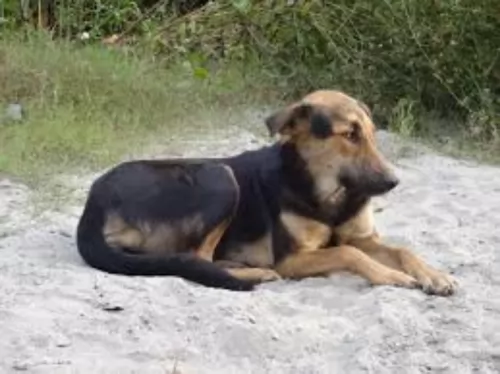 The Indian pariah, known also as the Indi-dog or In-dog, is an ancient dog breed common throughout India as well as Bangladesh.
The Indian pariah, known also as the Indi-dog or In-dog, is an ancient dog breed common throughout India as well as Bangladesh.
A breed standard does exist for the dog with the Indian Kennel Club and the dog has also been recognized by the Primitive and Aboriginal Dog Society.
A great dog enthusiast, Indian environmentalist, M Krishnan, has written about this ancient dog breed, telling about its wonderful temperament and its hardy constitution.
 This is an ancient dog breed that originated in China. Known also as Lion Dogs, they are toy dogs that have always been a popular choice for Chinese royals.
This is an ancient dog breed that originated in China. Known also as Lion Dogs, they are toy dogs that have always been a popular choice for Chinese royals.
DNA analysis tells us that these dogs are one of the oldest dog breeds there are and over the years, the dog has barely changed in looks.
The dogs found their way out of China, and as they started spreading to the USA and the UK, Pekingese clubs started emerging. A pekingese dog was registered by the American Kennel Club in 1906, and the Pekingese Club of America was formed in 1909.
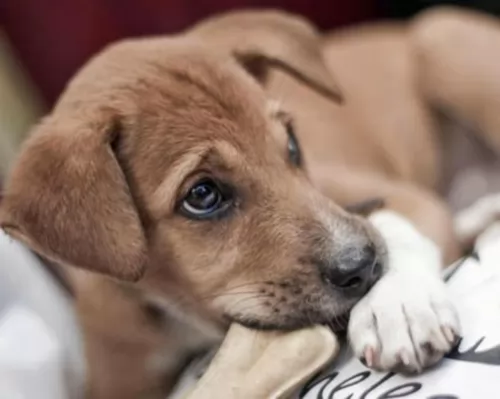 The Indian Pariah dog is a medium sized, lanky looking dog with the males and females standing at 46cm to 64cm in height and weighing roughly between 15 to 30kg.
The Indian Pariah dog is a medium sized, lanky looking dog with the males and females standing at 46cm to 64cm in height and weighing roughly between 15 to 30kg.
These dogs aren't big eaters so they tend to be lean and muscular. This is a double coated dog with the hair being coarse and fawn in colour or reddish brown.
He has fairly large, erect ears and brown eyes. He has a long tail which is held down but when he is excited it is held high and over the back, curling at the tip. There is sometimes white around the face and chest.
The Pariah dog is a social dog but he is somewhat timid, even though they make excellent watch dogs, being territorial around their human family. Being territorial, he can have an aggressive side to him so it is wise to have him trained and socialized as then he is obedient and capable of getting on well with children in the home.
These dogs are also very intelligent and therefore easily trained. He is an active dog and likes to be kept busy, wanting to be participating in the activities of his human family.
 The Pekingese is a dog which stands at between 30 – 45 cm and weighs anything from 3 to 7kg.
The Pekingese is a dog which stands at between 30 – 45 cm and weighs anything from 3 to 7kg.
His double coat can be fawn, cream, apricot, grey, or black or even a mix of some of these colors.
The Pekingese is known for its flat- or squashed face and his large, bulging type of eyes. His body is low to the ground and is somewhat longer than what it is tall. He has long, silky, feathery ears and his tail is plumed and essentially held over his back. The face usually has a black mask.
The Pekingese is a stubborn, independent, intelligent dog, but with his human family he is loving and loyal. People often look at the Pekingese and think that it is a delicate dog that just wants to sit on your lap and be cuddled. But this isn’t the case and the Pekingese is a dignified, robust, bold, confident dog. He is essentially an indoors dog though and will be content for a while to lie close to his human companion. He is calm and quiet indoors but is also game for some activity, being quite a playful dog.
The Pekingese is the kind of dog that will slot easily into city or country living. He gets on well with children but if he could choose, he would prefer to live with calm, consistent adults, as he doesn’t gel too well with raucous, undisciplined children.
He is a wilful dog and will require being trained and socialized to make him obedient and more amicable.
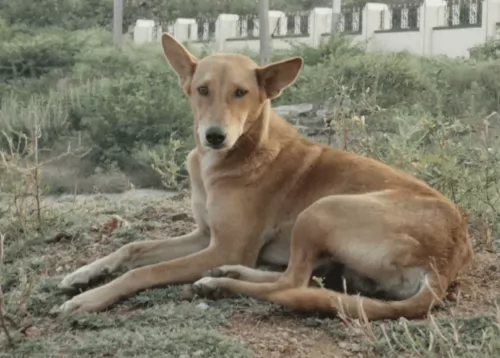 The Indian Pariah dog is just an ordinary dog looking to be a superb companion for you. These are dogs with no airs and graces and in fact they have lots of positive attributes about them.
The Indian Pariah dog is just an ordinary dog looking to be a superb companion for you. These are dogs with no airs and graces and in fact they have lots of positive attributes about them.
They are just your ordinary, social dogs who are able to form strong, loyal friendships with their human owners. He is a faithful dog breed and he has had a long association with humans dating back to thousands of years. He is healthy and cheerful and he is just waiting for you to give him a chance so that he can show you what a cheerful, playful, devoted, wonderful friend he can be to you too.
 Sometimes when his hair has grown long and he has a ribbon in it he may be looked upon as shallow, pathetic and nothing but lapdog. In reality his heart is brave, tough, dignified and confident.
Sometimes when his hair has grown long and he has a ribbon in it he may be looked upon as shallow, pathetic and nothing but lapdog. In reality his heart is brave, tough, dignified and confident.
All the Pekingese wants is to be a normal and loving pet for the right kind of person who appreciates all his strong characteristics.
He is capable of being quite lively and protective of his human family. Give him love and treat him kindly and firmly and you’ll find out why he is such a popular dog breed.
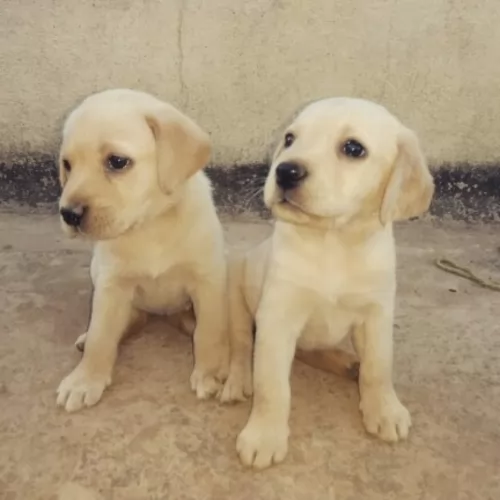 This is a dog which can live to between 13 and 15 years of age when he is treated well.
This is a dog which can live to between 13 and 15 years of age when he is treated well.
These Indian Pariahs are a natural dog breed, and to this end they are free of genetic health concerns such as hip dysplasia which is a very common ailment with nearly all dogs.
Remember that every dog stands a good chance of picking up some life-threatening illnesses if not vaccinated against them. Some of these diseases to be concerned about are canine distemper and parvo-virus. Rabies, kennel cough and parasites such as fleas and ticks can also pose a real danger to your pet.
The Pariah has been around for a very long time and today he is a robust, low maintenance pet that isn't going to cost you a lot of money .
 The Pekingese can live to be between 10 – 15 years of age. One of the main medical problems with this dog is his squashed face which can be a source of breathing problems for him.
The Pekingese can live to be between 10 – 15 years of age. One of the main medical problems with this dog is his squashed face which can be a source of breathing problems for him.
The large, bulging eyes can also cause quite a few problems such as glaucoma, cataracts and eye ulcers. With Entropion the eyelid of the eye rolls inward and irritates the eyeball.
Your Pekingese shouldn’t be left outside as with his breathing problems, he isn’t good with regulating body temperature and can overheat in hot weather.
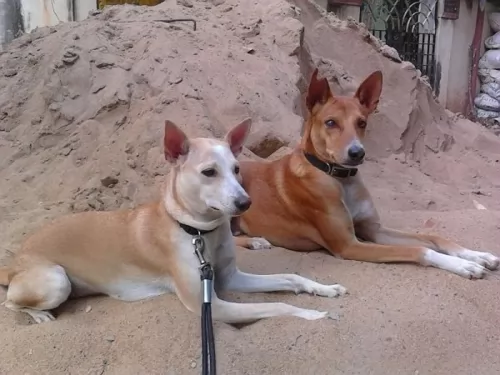 This is a low maintenance dog who also happens to shed little. A brush once or twice a week will be sufficient and it will keep the fur shiny and healthy.
This is a low maintenance dog who also happens to shed little. A brush once or twice a week will be sufficient and it will keep the fur shiny and healthy.
Your puppy will need to be vaccinated at 6 weeks of age. There are some veterinary clinics in India that offer free vaccine shots. Your puppy will be dewormed too. Make sure he has a nice dry, warm place to sleep, and for during the day, ensure that there is a shady spot for him too.
It's always a good idea to try and feed your puppy the best food there is. If you visit a veterinary clinic, find out what the most appropriate food would be for your puppy and how often you should feed him during the day.
If you feed your adult Indian Pariah dog kibble and you're able to, try and add in some home-made food too such as cooked chicken or rice. Some raw meat added in from time to time will also do your dog the world of good. Make sure there is always a bowl of cool, clean water standing by.
 Nothing is set in stone when it comes to the diet of your Pekingese or any other dog for that matter. How much a dog eats will depend on his breed, his age, his size and his activity levels.
Nothing is set in stone when it comes to the diet of your Pekingese or any other dog for that matter. How much a dog eats will depend on his breed, his age, his size and his activity levels.
Every dog is an individual and your Pekingese is too. Good food however dictates a lot on how healthy your pet will be so it will be to his benefit to give him the best quality commercially manufactured food there is.
He loves a bit of variety too so if you chop up some boiled chicken, brown rice and some wholesome vegetables such as carrots, spinach and sweet potato and add this to his kibble occasionally he will be delighted. He doesn’t want anything unusual or spicy because he can’t bear to have an upset stomach.
He must never be without a continuous supply of fresh, cool water.
The Pekingese doesn’t have serious exercise needs, and a little bit of running and exerting himself can have him snorting and grunting. A slowish walk outside will satisfy his exercise needs.
The coat of the Pekingese is long and thick and if you choose to keep it that way it will require brushing at least twice a week. Some people prefer to have the dog’s hair cut professionally as then it is easier to manage.